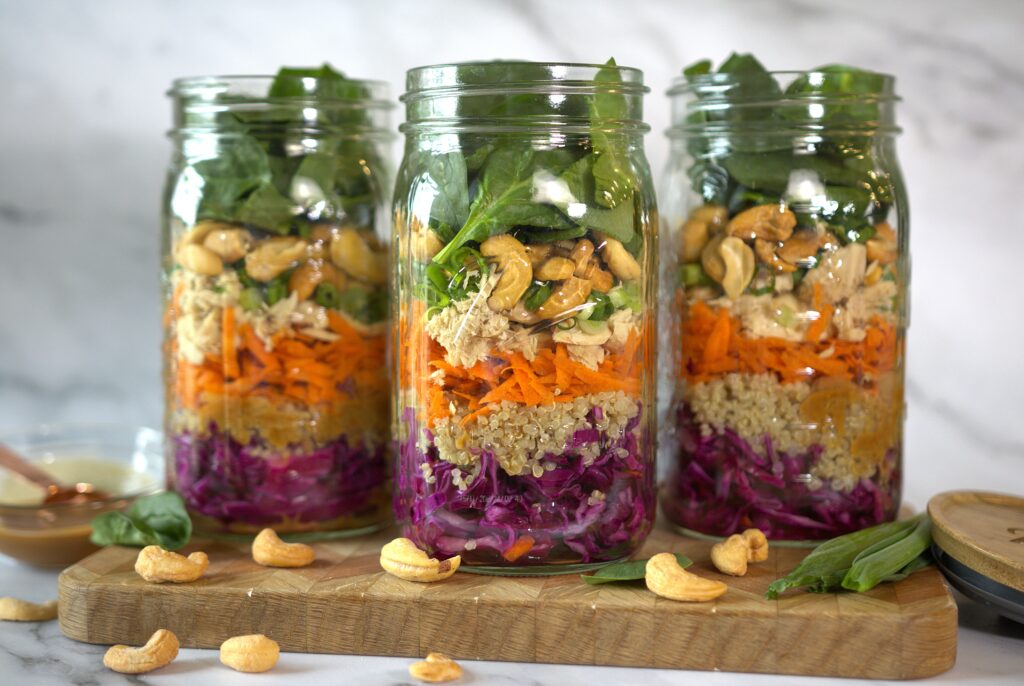When you use these links, we may earn a small commission at no extra cost to you—thanks for helping us keep things going!
Salmon Quinoa Crunch Salad


Salmon Quinoa Crunch Salad
- Total Time: 10 minutes
- Yield: 2 Salads 1x
- Diet: Vegetarian
Description
This Salmon Quinoa Crunch Salad in a mason jar is a perfect make-ahead meal, layered with cabbage, carrots, spinach, quinoa, and roasted salmon, then topped with cashews and a creamy miso peanut dressing. Packed with flavor, protein, and crunch, it’s an easy and nutritious grab-and-go lunch for busy weeks.
Ingredients
Miso Peanut Dressing:
- 2 tsp White Miso Paste
- 1 Garlic Clove, minced
- 1/4 cup Peanut Butter
- 1/4 cup Soy Sauce
- 1 tsp Sesame Oil
- 2 tbsp Rice Wine Vinegar
- 1 tbsp Honey
- 1 tbsp Water
- 1 tsp Sriracha
Salad:
- 1/2 cup Cooked Quinoa
- 10 oz, Canned Salmon
- 2 Cup Red Cabbage
- 2 tbsp Rice Wine Vinegar
- 2 Carrots, Grated
- 4 Scallions, minced
- 1/2 cup Baby Spinach
- 4 tbsp Cashews
Instructions
- In a medium-sized bow, add all the dressing ingredients, whisk together until smooth. Set aside.
- Prep all the veggies for the salads. Chop and grate!
- Next up is assembly!
- Start with cabbage. Add 2 tbsp rice wine vinegar to the 2 cups shredded cabbage, mix together. Then, place 1 cup of cabbage mixture into the bottom of each mason jar.
- Top the cabbage in each jar with 1/2 cup quinoa. Then 2 tbsp of miso peanut dressing.
- Next top each jar with 5oz of salmon (1 can), then 1/2 cup grated carrot, 2 tbsp scallions.
- Finally, add to each jar, 2 tbsp cashews then 1/2 cup of baby spinach.
- Place a lid on mason jars and pop into the fridge until you are ready to eat! Enjoy!
Nutrition
- Serving Size: 1 Salad
- Calories: 449
- Sugar: 6g
- Sodium: 450mg
- Fat: 18g
- Carbohydrates: 32g
- Fiber: 5g
- Protein: 43g
- Cholesterol: 83mg







